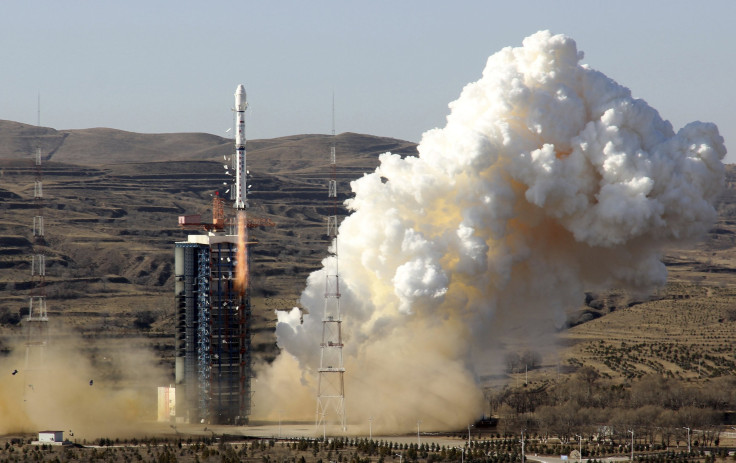China's Space Program: 2016 Satellite Launch To Support Manned Missions, Researchers Say

China’s space program and research ambitions have continued to reach new heights Thursday, when Chinese researchers announced plans to launch a retrievable scientific research satellite in the first half of 2016. The SJ-10 satellite was set to run a series of tests that would aid scientists back on Earth conducting research in microgravity and space life science, project chief Hu Wenrui said according to state-run Xinhua News Agency. The data collected from the tests were expected to eventually be implemented to support manned space missions, as well.
China's space dream: going to the ISS... and beyond. @McKenzieCNN gets a rare look inside the Chinese #space program: http://t.co/cTZwKX5NKK
— Kristie Lu Stout CNN (@klustout) May 29, 2015The satellite would specifically administer 19 experiments in 6 different scientific disciplines: microgravity fluid physics, microgravity combustion, space material science, space radiation effect, microgravity biological effect and space biological techniques. The satellite would return to Earth after 12 days of orbit in a re-entry capsule. The program was also reportedly planning to launch a satellite for quantum science experiments and an X-ray telescope to study black holes within the next two years.
Though China has made impressive strides in manned missions to space, scientists have also maintained momentum when it came to unmanned research as well.
China’s space program has had a much later start compared to traditional space powers but is gaining ground on the accomplishments of Russia and the United States. “China by virtue of the ambition of its space program stands out,” Dr. Louis Brennan, professor and co-author of the book ‘The Business of Space,’ wrote in a CNN op-ed earlier this year. “China has already achieved rapid success and has more long-term plans for deeper venturing into space, including Mars.”
Despite these smaller advances, China was working toward the larger goal of finishing its space station by 2022, around the same time the International Space Station -- which Chinese astronauts have been barred from because of U.S. national security concerns -- will likely run out of funding, CNN reported. If funding for the ISS did not renewed and China managed to launch its own space station, China would be the only country with permanent presence in outer space.
© Copyright IBTimes 2024. All rights reserved.






















